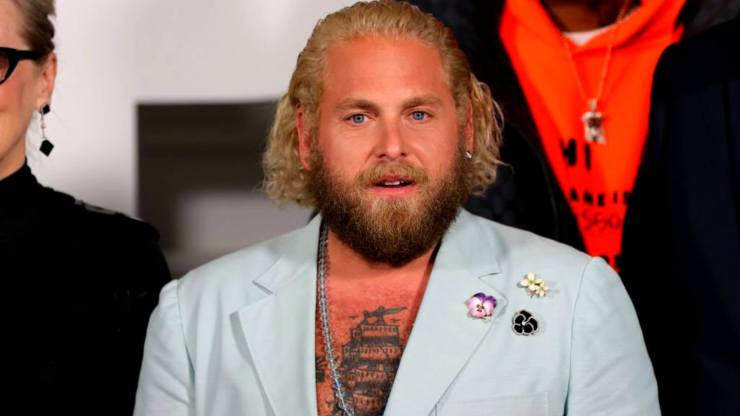We can see Jonah Hill’s career progressing with success after success, hit after hit, and hit after hit. The actor has appeared in several of the funniest films of the past 20 years.
Hill then transitioned into more serious roles with aplomb, getting votes for the Best Supporting Actor Academy Award twice for the films Moneyball and The Wolf of Wall Street.
But if you read any magazine articles about Hill or watch him on a late-night talk show, you’ll notice that he’s open about his battles with body mass, anxiety, depression, and panic attacks.
Jordan, Hill’s older sibling, tragically died in 2017 from a pulmonary embolism. Hill has frequently discussed how sports like Jiu Jitsu and surfing have aided in managing his mental health.
Phil Stutz, a Los Angeles-based therapist who, in the words of Hill, “made my sanity,” is the centerpiece of his most recent Netflix documentary, Stutz.
A Little Background On This Upcoming Documentary
The scene in “Stutz” occurs in the therapist’s office, as shown in the teaser trailer. Yet, in this instance, Hill poses most of the queries rather than the other way around.

A few of Stutz’s graphic methods used in his solution-based practice were highlighted in the documentary.
Stutz’s perception of the necessity of therapy was probably influenced by a Parkinson’s diagnosis even before he explicitly stated this.
Hill tells Stutz immediately that despite his best efforts, he’s encountered a filmmaking and therapeutic hitch despite his intention for the documentary to resemble a session.
In a movie that deftly balances vulnerability, insightful wisdom, and artistic brilliance, this initials slightly meta scene is just the beginning of many.
Stutz, presumably “Dr. Stutz,” has been Jonah Hill’s therapist for a long time. Interestingly, we never hear him refer to himself in that way.
Hill briefly discusses his panic episodes and expands on his long-standing body image problems from his adolescence, although he stresses that this documentary does not deal with such things.
Hill’s goal is to introduce as many people as possible to Stutz’s concepts in this book about Stutz, who he is, and what he does to help individuals improve their psychological health.
They converse while seated across from one another, likely as they would regularly so that Hill may, as Stutz says, “load everything” on him.
You notice Stutz is raised differently after watching the first few moments of the documentary. The 75-year-old and Hill get along well almost effortlessly in a way comparable to that of a professor and graduate student.
He uses unconventional techniques like hand drawings to explain difficult psychotherapy topics, curses extensively, frequently babbles, and has been diagnosed with Parkinson’s disease.
And now, some background on Stutz
There are significant biographical tidbits snipped from the conceptual muck of psychotherapy. Perhaps it is obvious that Stutz’s illustrations and words display basic motion.
He’s had Parkinson’s disease for a very long period, which is why these writings appear shaky and rough. We ultimately find out that Stutz’s brother, who passed away at age three, served as a point of empathy between him and Hill.
In his opening statements, Stutz also discusses his mother and upbringing with an abusive father.
Stutz acknowledges that his childhood seemed like an impenetrable maze for a long period. Stutz makes a subtle reference to a peculiar 40-year-long on-and-off connection he’s had with a woman.
Hill may occasionally veer the conversation back to Stutz by bringing up his problems. However, no film about Hill’s therapist can ignore those subjects, to be completely honest.
Sometimes, during the documentary, you’ll learn more about Jonah’s mother, Sharon Feldstein, than you probably need to know. This usually happens several moments into the conversation.








